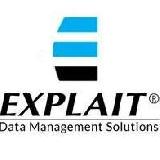What our clients say
-

"Outstanding Service. I'm using ClouDNS since 2015 for personal domains. In 2018 moved the domains of the company were i work and we use your services since then. Would never though to go back!!!..."
Stanislav Filavtev
-

"Ako webová agentúra ponúkame našim klientom zdieľaný hosting a chceme im zaručiť, že aj keď sa na našom serveri vyskytnú nejaké problémy, ich oddelené služby by zostali v prevádzke. Preto som sa obrátil na ClouDNS ..."
Grigor Yosifov
CEO @ Forci Web Consulting Ltd
-

"Ďakujem vám za príležitosť zaplatiť za služby v bitcoinoch. Je to veľmi dôležité pre vašich zákazníkov z Ukrajiny v čase, keď je teraz zničený bankový systém Ukrajiny."
Mikhail Chutowski
-

"The best DNS hosting on the GeoDNS Start tariff significantly accelerated and increased the availability of the resource"
Molepool.
Source:
-

"Prompt efficient service every time! Very responsive and reliable company! Thank you!!!"
Salomé Barao
Source:
-

"I haven't had any issue in 10 years and the support service is amazingly fast!"
JORGE B
Source:
-

"I wrote to their live chat support about a phishing website that was active, they took it down in 5 minutes! They care about security and their network reputation."
Brad B.
Source:
-

"Even during the trail period and free service their customer service is top tier. I've used other premium services but very few of them can match the quality with ClouDNS. "
Shouvik Pal
Source:
-

"Working with the team at ClouDNS has been very supportive. My experience has been excellent. The team is attentive, knowledgeable and skilled when it comes to Cloud DNS, and I can recommend their professionalism."
J. May
Marketing Chief @ Amaze Communication
-

"Ďakujem vám chlapy za úžastnú prácu!
Bezplatnú verziu vašej služby DNS používam približne 4 roky a nedošlo k žiadnym výpadkom... “Iskren Slavov
Founder/Full Stack Developer @ Wish Development Ltd
-

"Got frustrated with the lack of knowledgeable support at GoDaddy, searched for alternate DNS providers and found ClouDNS. Could. Not. Be. Happier..."
Phillip McMahon
-

"I've been using ClouDNS for the last ten years and I've never had a single issue. I only log in to tweak DNS settings or renew my domain, and it’s always super easy."
Todor Tsankov
Source:
-

"DNS Ninjas. Real People. Real Help. If you're looking for a DNS provider that actually talks to you like a human and not a ticket-bot, ClouDNS is the real deal."
Bandit
Source:
-

"ClouDNS je úžasný, používam ho už nejaký čas a funguje skvele. Chcem vám poďakovať za vaše fantastické riešenie pre služby DNS."
Helinton Dias
@ CloudExperts Consultoria
-

"Som veľmi spokojný s vašou spoločnosťou. Ste skutočne najlepším poskytovateľom DNS na internete. Vaša zákaznícka podpora, ceny a funkcie sú špičkové."
Christopher Nofal
Manager @ DreamLab LLC
-

„ClouDNS používam od roku 2014 a musím povedať, že je skutočne úžasný. Služby, ktoré mne a mojim klientom poskytli, boli na špičkovej úrovni. Poskytujú služby skutočne cennej hodnoty, najmä predplatné DDoS ...
Daniel Ives
CEO @ Ives Network t/a Daniel Ives
-

"Fantastic customer service always! New customer with this company and I can't believe how well you are treated. Hard to find a great company like this one which provides such a great service and products."
Mel
Source:
-

"I have been using ClouDNS for over a year now, and I couldn't be more satisfied with their services. From the start, their platform has been user-friendly and intuitive, making the process of registering and managing domains straightforward and hassle-free."
Răzvan Birișan
Source:
-

"ClouDNS provides the best in class DNS services. Prior to ClouDNS we were hosting and managing our DNS servers which was not core to our business so when we compared alternatives ClouDNS was the right fit..."
James Aker
President at Explait @ EXPLAIT, LLC
-

"Amazing support, great services, and best prices."
Dion Vogliqi
Source:
-

"Knowledgeable and friendly Their tech support is always friendly and knowledgeable. I have never had any issue with downtime."
Boe VPN
Source:
4.7 out of 5 stars on Trustpilot based on over 130 reviews

"Your customer service is at the top of my list, keep up the good work!"
Sami Sälö
Chairman of the Board @ Salskea Oy